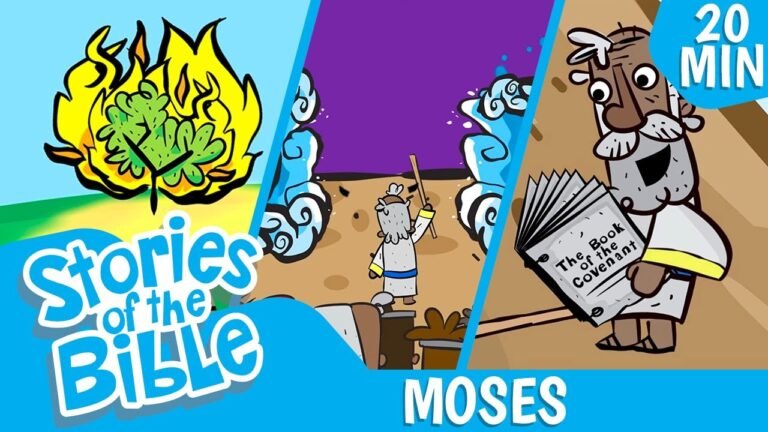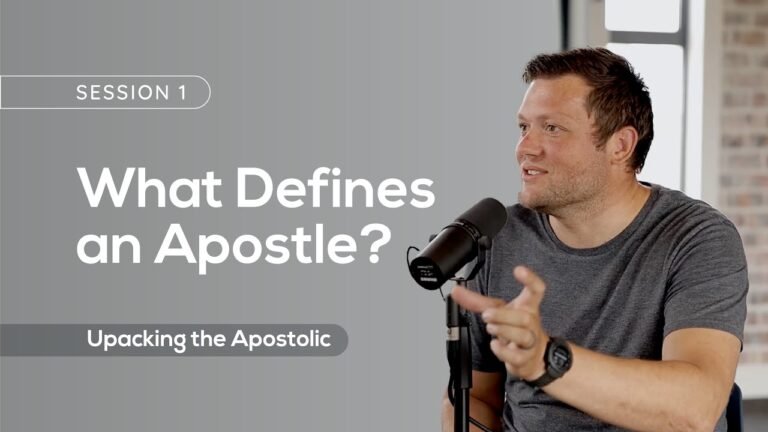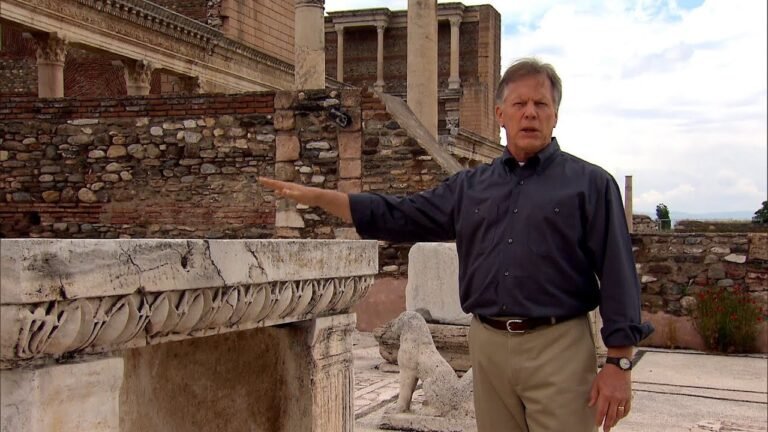The Impact of Moses in Biblical Narratives
The story of Moses in the Bible is a powerful narrative that transcends time, exploring themes of faith, leadership, and liberation. From his miraculous survival as an infant to his role as the liberator of the Israelites from slavery in Egypt, Moses embodies the struggle for justice and the pursuit of divine purpose. His encounters with God, the plagues of Egypt, and the parting of the Red Sea are not just historical events; they are profound lessons that continue to inspire millions. This article delves into the life of Moses, highlighting his significance in biblical history and the enduring impact of his story on contemporary society.
Advantages
- Leadership Skills: Moses demonstrated exceptional leadership abilities, guiding the Israelites out of Egypt and through the wilderness.
- Faith and Obedience: His unwavering faith in God and commitment to following divine instructions serve as a powerful example for believers.
- Lawgiver: Moses is credited with receiving the Ten Commandments, establishing a moral and ethical foundation for the Israelites that influences many cultures today.
- Intercessor: He acted as an intermediary between God and the people, showcasing the importance of prayer and advocacy in spiritual leadership.
- Resilience: Despite numerous challenges and setbacks, Moses remained steadfast in his mission, illustrating the value of perseverance in the face of adversity.
Disadvantages
- Lack of Historical Evidence: The accounts of Moses in the Bible may lack substantial archaeological evidence, leading to debates about their historical accuracy and the actual events that may have inspired the stories.
- Cultural Misinterpretation: The story of Moses can be interpreted in various ways across different cultures and religions, which may lead to misunderstandings or misrepresentations of the original message and intent.
- Ethical Dilemmas: Some actions attributed to Moses, such as the plagues of Egypt and the conquest of Canaan, raise ethical concerns and can lead to difficult discussions about morality in religious narratives.
- Overemphasis on Leadership: The focus on Moses as a singular leader can overshadow the contributions of other figures in the Exodus story, potentially diminishing the complexity of the community’s experience and collective efforts.
- Gender Bias: The narrative primarily centers on male figures, which can perpetuate gender bias by neglecting the roles and experiences of women in the biblical story, limiting a comprehensive understanding of the historical context.
Where can the book of Moses be found in the Bible?
The books of Moses, often referred to as the Pentateuch, form the foundational texts of the Bible, encompassing Genesis, Exodus, Leviticus, Numbers, and Deuteronomy. These five books detail the creation of the world, the origins of humanity, and the early history of the Israelites, including their laws and covenant with God. Integral to both Jewish and Christian traditions, they serve as a vital cornerstone of faith, guiding moral and ethical principles that resonate through the ages.
In which part of the Bible can the story of Moses as a baby be found?
The story of Moses as a baby unfolds in chapter 2 of the Book of Exodus, where we witness a remarkable moment in history. In a time when Hebrew infants faced dire consequences, his mother, Jochebed, took a courageous step to protect him. She placed her newborn in a basket and set it adrift on the Nile, hoping for a miracle.
That miracle arrived when Pharaoh’s daughter discovered the basket while bathing in the river. Struck by the baby’s beauty and innocence, she chose to adopt him, naming him Moses. This pivotal moment not only altered the course of one man’s life but also set into motion the events that would lead to the liberation of the Israelites, showcasing themes of hope, resilience, and divine intervention.
Who lived first, Jesus or Moses?
Moses is a pivotal figure in both Jewish and Christian traditions, believed to have lived approximately 1,000 years before Jesus. His leadership in liberating the Jewish people from slavery in Egypt and receiving the Ten Commandments from God solidifies his status as a foundational character in religious history. These events not only shaped the course of Judaism but also laid the groundwork for Christian teachings.
In contrast, Jesus’ life and ministry came much later, as he is central to the New Testament and the foundation of Christianity. While both figures are revered for their spiritual significance and contributions to faith, the timeline clearly places Moses in a much earlier historical context. This distinction highlights the rich tapestry of religious narratives that have influenced billions over the centuries.
Unveiling Leadership Lessons from Moses
Moses, a towering figure in history, offers timeless leadership lessons that resonate across generations. His journey from a reluctant leader to a powerful figure guiding his people through adversity highlights the importance of resilience and vision. Moses exemplified the qualities of empathy and communication, rallying a diverse group towards a common goal while navigating their fears and doubts. His unwavering faith and commitment to justice not only inspired those around him but also underscored the significance of leading with purpose. As we reflect on his legacy, we find that effective leadership is rooted in the ability to inspire trust, foster unity, and embrace challenges with courage and integrity.
Moses: A Catalyst for Change in Scripture
Moses stands as a pivotal figure in the biblical narrative, embodying the essence of transformation and leadership. His journey from a reluctant shepherd to a bold liberator illustrates the power of faith and resilience in the face of oppression. Through divine encounters, he not only confronts Pharaoh but also leads the Israelites toward freedom, establishing a covenant that reshapes their identity and spiritual destiny. Moses’ unwavering commitment to justice and his role as a mediator between God and His people highlight the profound impact one individual can have in sparking change and inspiring generations to pursue a path of righteousness and hope.
The Enduring Legacy of Moses in Faith
Moses stands as a towering figure in the tapestry of faith, embodying leadership, resilience, and divine purpose. His journey from the humble beginnings of a Hebrew slave to the revered prophet who led his people out of Egypt is a testament to unwavering faith in the face of adversity. Through his encounters with God, particularly at the burning bush, Moses exemplified the profound relationship between humanity and the divine, serving as a bridge that connected the Israelites to their covenant with God.
The teachings and laws imparted by Moses have left an indelible mark on religious thought and practice across generations. The Ten Commandments, a cornerstone of ethical conduct, continue to resonate in both religious and secular contexts, influencing moral frameworks and legal systems worldwide. His role in shaping the narrative of freedom and justice has inspired countless movements aimed at liberation and equality, making Moses not just a historical figure but a symbol of hope and change.
Moses’ legacy transcends time, inspiring millions to embrace faith as a guiding force in their lives. His story encourages believers to confront challenges with courage and to seek a deeper understanding of their purpose. As a leader who navigated the complexities of faith and community, Moses remains an enduring beacon of inspiration, reminding us that the journey of faith is as transformative as the destination itself.
Exploring Moses’ Role in Shaping Biblical History
Moses stands as one of the most pivotal figures in biblical history, his life and leadership serving as a cornerstone for the identity of the Israelite people. Through his courageous defiance against Pharaoh and his unwavering commitment to God, Moses led the Israelites from slavery to liberation, demonstrating the power of faith in action. His role in receiving the Ten Commandments on Mount Sinai not only established a moral and legal foundation for the community but also reinforced the covenant between God and His people, shaping their spiritual and social framework for generations.
Beyond the immediate impact of his actions, Moses’ influence extends into the realms of law, leadership, and theology. His narrative weaves together themes of justice, humility, and perseverance, offering timeless lessons that resonate with both religious and secular audiences. By guiding his people through trials and tribulations, Moses exemplified the qualities of a true leader, leaving an indelible mark on Jewish, Christian, and Islamic traditions alike. His legacy continues to inspire millions, reminding us of the profound effects one individual can have in shaping the course of history.
The story of Moses in the Bible is a powerful testament to faith, leadership, and the enduring struggle for freedom. His journey from a humble birth to becoming a pivotal figure in the liberation of the Israelites resonates with timeless themes of resilience and divine purpose. As we reflect on his life, we are reminded of the strength found in conviction and the impact one individual can have on the course of history. Moses’ legacy continues to inspire generations, urging us to rise against oppression and seek justice with unwavering determination.







